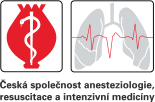Anest. intenziv. Med. 2000;11(2):75-79
Prevention of Renal Dysfunction in Critically Ill PatientsArticles
- Metabolická jednotka intenzivní péče, I. interní klinika FN Plzeň, přednosta doc. MUDr. Karel Opatrný jr., CSc.
Acute renal failure (ARF; the most severe form of renal dysfunction) in the critically ill has a high mortality rate (50O80 %) and in most cases isa part of multiple organ dysfunction syndrome (MODS). The predominant cause of ARF in critically ill patients is acute tubular necrosis (ATN) dueto ischemia or nefrotoxic agents.The prevention of ARF is based on maintenance of adequate intravascular volume, cardiac output and renal perfusion pressure. The identificationand adequate monitoring of high-risk patients and the elimination of potential nefrotoxic agents is essential.We discuss the role of established pharmacological support (dopamine, diuretics, and calcium antagonists) as well as the place of some new agents(atrial natriuretic peptide, prostaglandins, adenosine antagonists and growth factors) in the prevention of ARF.
Keywords: acute renal failure; intensive care; prophylaxis; acute tubular necrosis; nefrotoxin
Published: April 1, 2000 Show citation




